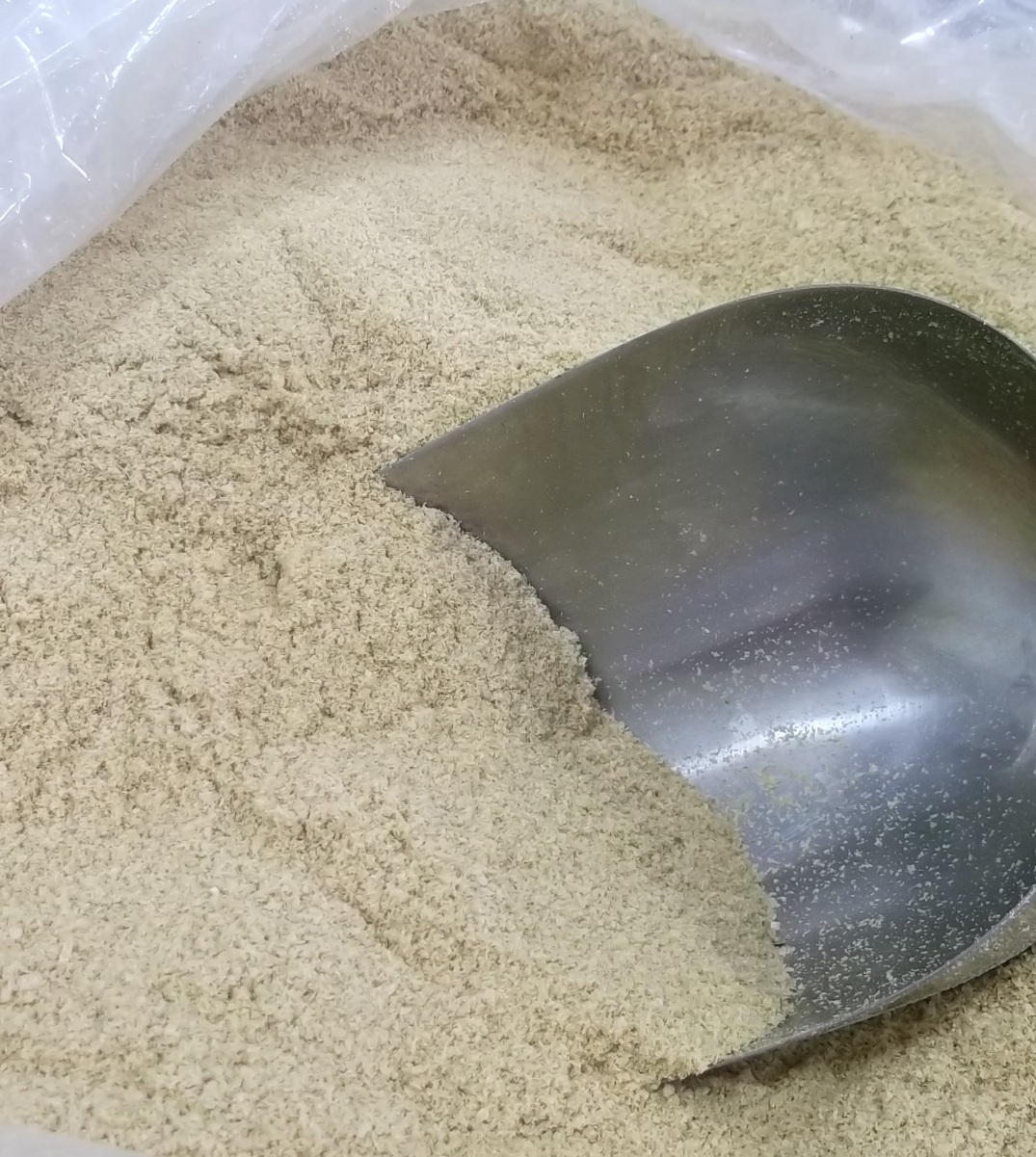
Nuka
Rhapsody rice bran is created as a by-product when we make koji. We polish certified organic brown rice slightly to remove the outer bran, yielding rice bran. This is necessary in order for the mold culture to penetrate the rice properly. As we only produce rice bran when we make koji we only have a limited supply.
Traditionally rice bran (nuka) is used in Japan for pickling vegetables and fish. Nuka is a nutrition powerhouse: high in iron, B vitamin, manganese, potassium, phosphorus, magnesium, and zinc, amongst others.
Once converted to a pickling medium by toasting, adding salt, water, and vegetables the resulting fermentation itself generates lactobacillus and other beneficial organisms.
More info about nuka.
Detailed nutrition data about nuka.
Order nuka here in our shop.
Frequently Asked Questions About Nuka
Can I freeze rice bran (nuka)?
Yes! Rice bran can be frozen for up to 2 years.
What about phytic acid in rice bran (nuka)?
Phytic acid is a compound that chelates and is thus a double-edged sword: it is thought to prevent the absorption of iron, zinc, phosphorus, and calcium and magnesium by bonding to it, as well as to a lesser degree, help in the removal of heavy metals from the body. Quantities of phytic acid are found in grains, beans, nuts, and seeds, including soy and rice.
Phytic acid is broken down by phytase, a digestive enzyme released by Aspergillus oryzae (a koji mold) and Rhizopus oligosporus (tempeh’s main mold). Studies have shown that products fermented using these molds have a significantly reduced level of phytic acid. Much is still unknown about phytic acid. That is why a safe approach is to consume a traditional balanced diet consisting of a large variety of home-grown and home-made organic foods, including fermented foods. That’s why Nuka pickles (made by using roasted rice bran) one of those as of yet mysterious traditional foods deserve a spot in our diet.
Let’s have some common sense of faith in our ancestors and not throw away the baby with the bathwater!
Tip to neutralize phytic acid: Add some broken up koji to your grains, beans, nuts, or seeds if you decide you need to soak them overnight to enhance the break down of phytic acid, by using the phytase present in the koji.

